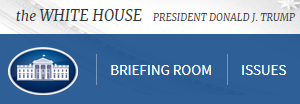President’s opioid commission report a nod to integrative care
August 24, 2017
 by John Weeks, Publisher/Editor of The Integrator Blog News and Reports On July 31, the President’s Commission on Combating Drug Addiction and the Opioid Crisis issued a preliminary report urging the president to declare a national emergency under either the Public Health Service Act or the Stafford Act. Doing so would allow the administration to waive some federal rules and put pressure on Congress to provide more funding. The report also calls for development of non-opioid pain relievers. President Donald J. Trump signed an Executive Order in late March establishing the Commission to address the opioid crisis. The Commission is made up of five members, and chaired by New Jersey Governor Chris Christie. Bertha Madras, PhD, psychobiology professor and entrepreneur at Harvard University, is the only academic on the committee. Nothing in the Order charged the Commission with exploring “non-pharmacologic”, “integrative", or “complementary and alternative” therapies.
by John Weeks, Publisher/Editor of The Integrator Blog News and Reports On July 31, the President’s Commission on Combating Drug Addiction and the Opioid Crisis issued a preliminary report urging the president to declare a national emergency under either the Public Health Service Act or the Stafford Act. Doing so would allow the administration to waive some federal rules and put pressure on Congress to provide more funding. The report also calls for development of non-opioid pain relievers. President Donald J. Trump signed an Executive Order in late March establishing the Commission to address the opioid crisis. The Commission is made up of five members, and chaired by New Jersey Governor Chris Christie. Bertha Madras, PhD, psychobiology professor and entrepreneur at Harvard University, is the only academic on the committee. Nothing in the Order charged the Commission with exploring “non-pharmacologic”, “integrative", or “complementary and alternative” therapies.  The Office of National Drug Control Policy (ONDCP) provides administrative and financial support for the Commission and its activities. However, in May, President Trump proposed cutting 95 percent of the ONDCP’s budget, according to the fiscal 2018 budget proposal obtained by Politico. There is no evidence that shows overlap of Trump voters and those who use integrative care. Still, the proven value of integrative therapies as a potential solution to the opioid crisis suggests value in further examining the report. The report does not explicitly address integrative care as a solution to addressing the opioid crisis, though the Commission does recommend “research initiatives and opportunities to combat the epidemic and enhance treatment options, including alternative pain management strategies”. The Commission’s final report is due October 1. Any member of the public wishing to submit written comments for the Commission’s consideration may do so via email at commission@ondcp.eop.gov.
The Office of National Drug Control Policy (ONDCP) provides administrative and financial support for the Commission and its activities. However, in May, President Trump proposed cutting 95 percent of the ONDCP’s budget, according to the fiscal 2018 budget proposal obtained by Politico. There is no evidence that shows overlap of Trump voters and those who use integrative care. Still, the proven value of integrative therapies as a potential solution to the opioid crisis suggests value in further examining the report. The report does not explicitly address integrative care as a solution to addressing the opioid crisis, though the Commission does recommend “research initiatives and opportunities to combat the epidemic and enhance treatment options, including alternative pain management strategies”. The Commission’s final report is due October 1. Any member of the public wishing to submit written comments for the Commission’s consideration may do so via email at commission@ondcp.eop.gov.  Comment: While the Commission invited comments from the general public on this report and their collective work thus far, it appears the integrative healthcare community has not participated. Entities, like the Integrative Health Policy Consortium (IHPC), that are known to rally activity did not make addressing this Commission a priority. Thus, the lack of inclusion may in part be due to a failure to show up. I know of one attempt of a Republican-connected member of the integrative healthcare field to get a representative involved with the Commission. It wasn’t successful. The one action I could find was from the typically libertarian Alliance for Natural Health in an August 15 article urging members to promote the use of cannabidiol oil as an opioid alternative. The Commission’s report focuses on conventional pharmacy. The industry should be supported in developing more medication-assisted treatments. Naloxone should be more readily available. Efforts to discover, monitor, and track “illicit fentanyl and fentanyl analogs” use should be expanded. There was, however, one sign of a broader view—a strong push to increase the availability of mental health services, a step toward holism. One mechanism recommended was to urge state insurance regulators to fine health plans that violate mental health parity law by restricting access to addiction-related mental health benefits more than they restrict access to other treatments. Enforcement of the 2008 Mental Health Parity and Addiction Equity Act (MHPAEA) would be a step toward treating the whole. An additional potential value may come if, as Trump said on August 10, he declares a national emergency related to opioids. If he does, states may be given more flexibility. Perhaps more may follow the leadership paths in Oregon, Maine, Vermont, Ohio, Rhode Island, and elsewhere in opening access to acupuncture and other integrative treatments. One cannot leave this topic without noting that whatever may be engaged, even under a national emergency, would be small potatoes relative to the impact of Trump’s plans to gut the Affordable Care Act. Reducing funding for Medicaid, as most of the “deform” bills would have done, would affect opioid addiction treatment, since the agency pays for about a quarter of all opioid addiction treatment prescriptions. What would be the impact of that action on the crisis?
Comment: While the Commission invited comments from the general public on this report and their collective work thus far, it appears the integrative healthcare community has not participated. Entities, like the Integrative Health Policy Consortium (IHPC), that are known to rally activity did not make addressing this Commission a priority. Thus, the lack of inclusion may in part be due to a failure to show up. I know of one attempt of a Republican-connected member of the integrative healthcare field to get a representative involved with the Commission. It wasn’t successful. The one action I could find was from the typically libertarian Alliance for Natural Health in an August 15 article urging members to promote the use of cannabidiol oil as an opioid alternative. The Commission’s report focuses on conventional pharmacy. The industry should be supported in developing more medication-assisted treatments. Naloxone should be more readily available. Efforts to discover, monitor, and track “illicit fentanyl and fentanyl analogs” use should be expanded. There was, however, one sign of a broader view—a strong push to increase the availability of mental health services, a step toward holism. One mechanism recommended was to urge state insurance regulators to fine health plans that violate mental health parity law by restricting access to addiction-related mental health benefits more than they restrict access to other treatments. Enforcement of the 2008 Mental Health Parity and Addiction Equity Act (MHPAEA) would be a step toward treating the whole. An additional potential value may come if, as Trump said on August 10, he declares a national emergency related to opioids. If he does, states may be given more flexibility. Perhaps more may follow the leadership paths in Oregon, Maine, Vermont, Ohio, Rhode Island, and elsewhere in opening access to acupuncture and other integrative treatments. One cannot leave this topic without noting that whatever may be engaged, even under a national emergency, would be small potatoes relative to the impact of Trump’s plans to gut the Affordable Care Act. Reducing funding for Medicaid, as most of the “deform” bills would have done, would affect opioid addiction treatment, since the agency pays for about a quarter of all opioid addiction treatment prescriptions. What would be the impact of that action on the crisis?



















SHARE